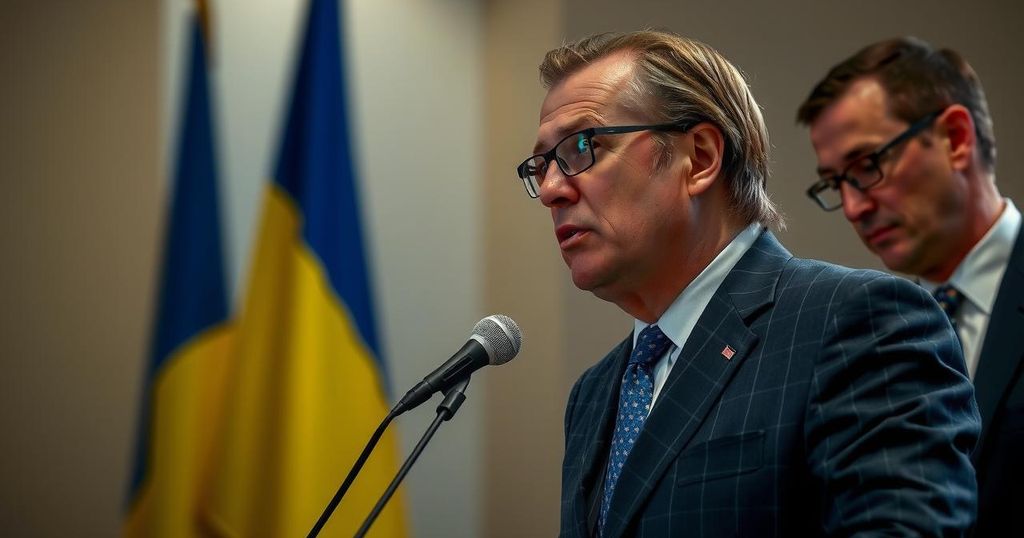Germany’s Support for Ukraine Strengthened Amid U.S. Election Uncertainty

Germany’s Foreign Minister, Annalena Baerbock, visited Kyiv to demonstrate European solidarity with Ukraine ahead of the U.S. presidential election, which could impact support for Ukraine. As Ukraine faces intensified Russian military pressure, Baerbock assured continued German assistance. President Zelenskyy is advocating for NATO membership and advanced weaponry to counteract Russian advances, amidst growing concerns about the role of North Korean troops in the conflict.
On Monday, Annalena Baerbock, Germany’s Foreign Minister, made an unscheduled visit to Kyiv, signaling strong European support for Ukraine amid the uncertainty of the upcoming U.S. presidential election. This election is poised to potentially alter Washington’s stance on Russia’s ongoing aggression against Ukraine. As the second-largest supplier of arms to Ukraine after the U.S., Germany has pledged unwavering support to assist the nation as it grapples with the consequences of the protracted conflict. Baerbock reiterated, “Together with many partners around the world, Germany stands firmly by Ukraine’s side.” Ukraine is currently facing a critical juncture as Russian forces have been making incremental advances, particularly in the contested eastern Donetsk region, and winter looms with its harsh conditions. Ukraine’s President, Volodymyr Zelenskyy, noted a recent uptick in military support from Western allies, particularly for artillery systems. However, there remains dissatisfaction among Ukrainian officials concerning the speed of these deliveries, as the ongoing warfare demands substantial amounts of ammunition to stave off the Russian onslaught. As the U.S. election approaches, President Zelenskyy is advocating for an extensive long-term support strategy that includes a formal appeal for NATO membership and the use of advanced Western missiles against Russian military installations. Nevertheless, Ukraine’s diplomatic efforts in this regard have not yielded the desired response, leaving officials in Kyiv concerned about the continued pressure on their forces. The situation is exacerbated by reports that North Korean troops are reportedly fighting alongside Russian forces, intensifying Ukraine’s military challenges. Baerbock’s visit came shortly after drone debris fell in Kyiv amidst Russian aerial attacks, although no casualties were reported. Overnight, Russian forces launched a significant offensive, deploying numerous drones against various Ukrainian targets, resulting in injuries in Kharkiv. As the conflict endures, Ukraine’s determination to secure robust international support remains vital to countering the relentless Russian aggression.
The backdrop of this article lies in the ongoing and complex geopolitical tensions arising from Russia’s invasion of Ukraine, which has persisted since 2022. As a result of this conflict, Western nations have rallied to support Ukraine through military and humanitarian assistance. Germany, as one of Ukraine’s principal arms suppliers, plays a crucial role in aiding the country’s defense against the Russian military. With the impending U.S. presidential election, there are looming concerns about the continuity of support from Washington, which could significantly impact future military strategies and international alliances.
In conclusion, the visit of Germany’s Foreign Minister to Kyiv underscores the unwavering support that European nations are prepared to offer Ukraine as it confronts the realities of ongoing warfare and the uncertainties associated with future international aid. Amid rising pressures from Russian forces and the complexities of global politics, Ukraine seeks to secure a lasting commitment from its allies, particularly concerning military resources to navigate the path toward a resolution for lasting peace.
Original Source: time.com








